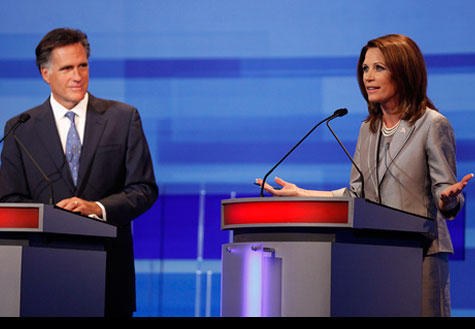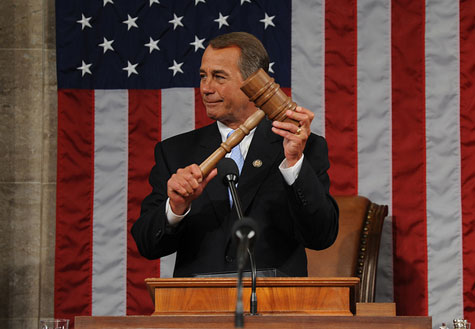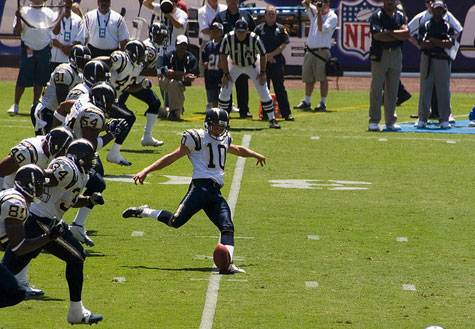Much scholarly research never suggests a clear practical application for the public good. You can’t say that about the work of Steven J. Brams, professor of politics at New York University. He seems to have an angle on everything.
True to form, he has advice that could help detoxify national politics and pull the agenda from the grip of political extremists … and a better way to elect candidates in a political primary where there seems to be no clearly superior choice … and how to pick a special congressional committee when important work needs to be done on divisive issues.
Born in Concord, N.H., and educated at MIT and Northwestern, Brams, at 71, is the kind of measured, unflashy communicator — he has a slight New England accent — you would expect to teach a math class.
Yet he is a formidable representative of the “rational choice” or “social choice” professoriate — scholars who apply economic methods to problems once reserved for other disciplines. Some consider rational choice adherents an invasive species, and Brams does seem to represent the “go anywhere” approach.
The Public Choice Society — Brams was its president from 2004 to 2006 — says its members still use economic methods but combine them with others “that are not clearly identified with any self-contained discipline.”
Brams, for example, has devoted his career to the application of mathematics and game theory to elections, politics, property, international disputes, and law. He is an owner or partner in three patents related to his ideas, and he has also delved into literature and pro football.
Many of his ideas share a common outcome — no one gets everything they want, but most people get a good share of what they want. So if you’re filled with fiery rhetoric and aim for total victory, Brams may not be your guy.
In his 2008 book Mathematics and Democracy, Brams shows how we can use math to parse all the alternatives and outcomes possible in different voting systems “to illuminate how, in a democracy, individual preferences are aggregated to produce outcomes sought by the electorate.”
Another important part of his work involves the study of decisions and outcomes involving multiple parties — the definition of game theory. He uses it to show how public and private goods can be fairly divided in disputes, according to due process and rule of law.
In Game Theory and the Humanities, Brams even offers fresh ideas about history and the Bible.
He examines, for example, the benefits of Bismarck’s magnanimity toward Austria in the Seven Weeks’ War of 1866, which gave Prussia dominance in Germany. Looking to future conflicts with France and France’s possible cooperation with Austria, Bismarck prevailed against other Prussians who would have pursued the Austrian army across the Danube or held a victory parade in Vienna.
In a section on Bible stories, God is subject to analysis via game theory, because, as Brams writes, God is not only the Bible’s central character, but he has goals he would like to achieve, humans have free will and “sometimes God is thwarted in his desires.”
To analyze all the possible outcomes, strategies, and goals involved in God’s command to Abraham to sacrifice his son, Isaac, Brams draws up a series of increasingly complex matrices. Eventually he concludes that “the more sophisticated the rationality calculation of Abraham, the less need for him to have blind faith in God in order to achieve his goals.”
There are critics who say rational choice fails to fully explain many of the subjects it addresses. They claim “austere and remote” mathematical theories “are incapable of capturing intense feeling and emotions of historical and literary characters,” writes Brams.
But games, he responds, are “rational responses to trying situations.”
And the proper role of political science using mathematics, he says, is the prescription of new procedures or solutions that are “superior, in terms of specified democratic criteria, to the ones that arose more haphazardly.”
And how to make people understand how the math works its magic in giving us better democratic institutions and more justice, especially in our math-challenged society?
The results, says Brams, are what matter.
“Innumeracy is not a major problem if people believe the system is doing what it purports,” says Brams. “We won’t need to explain [the math involved, as we’ve done in our interview] if we’ve assured the election of a representative committee.”
Brams says the public will have to be assured by experts and academics “like me” that the new system is doing what it’s supposed to and that “we can have a healthy debate.”
In the links below, we give you examples of solutions Brams has advocated for fair elections, representative committees, settling complex international disputes, and even taking the inequities out of NFL games that go into overtime.
Brams: Use Approval Voting in Presidential Primaries
Brams says approval voting, in which voters can vote for more than one candidate, is a better way to conduct multiple candidate elections.

Brams: Let Congress Select Super Committees
Instead of party leaders selecting members of Congress to form a super committee to hash out problems, Brahms suggests full houses of Congress make the picks using the minimax procedure.

Brams: Negotiate Mideast Peace With Point System
When rivals negotiate, Brams suggests using the adjusted winner technique, which gives negotiators 100 points apiece and for them to start the bidding.

Brams: Kick Coin Flips Out of NFL Overtimes
Instead of leaving it up to a coin flip, Brams says the NFL should start overtime by giving the ball to the team that wins a bidding war for the kickoff.

Sign up for the free Miller-McCune.com e-newsletter.
“Like” Miller-McCune on Facebook.
Follow Miller-McCune on Twitter.
Add Miller-McCune.com news to your site.





